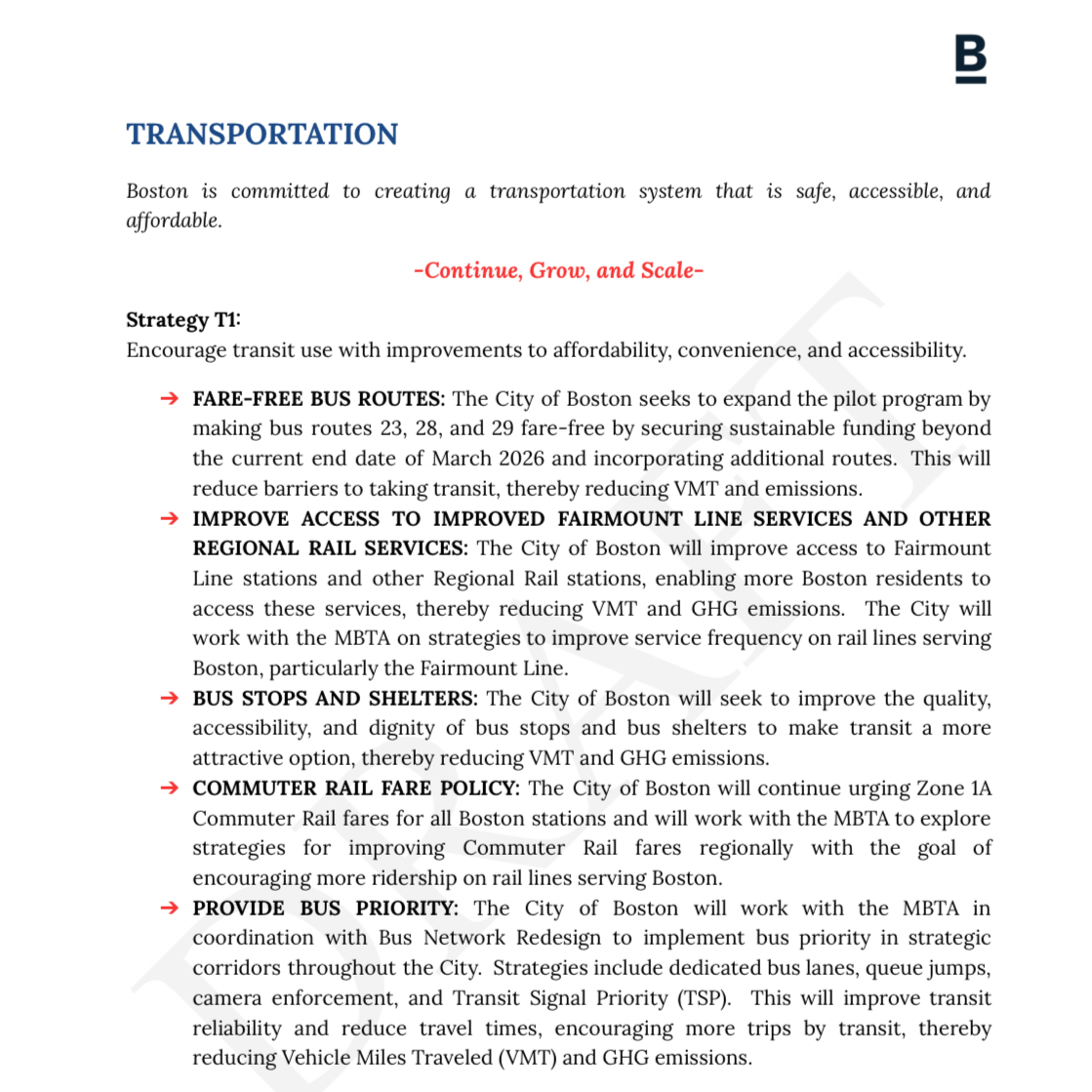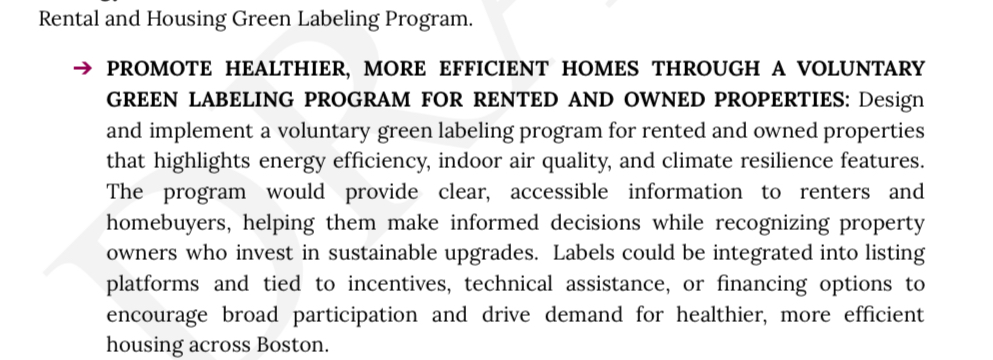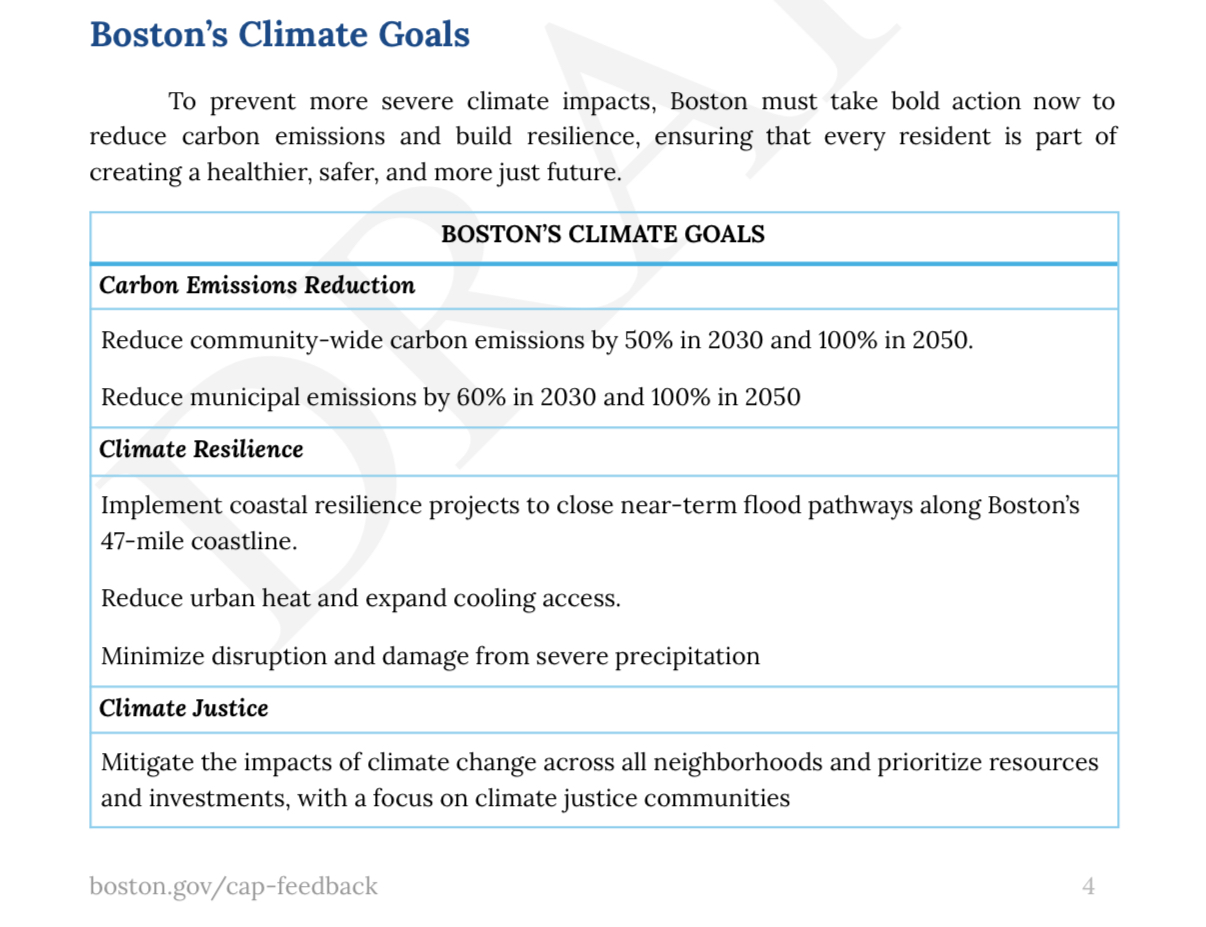BOSTON — Boston’s going green — and if Mayor Michelle Wu wins reelection this fall, you better get ready to fall in line.
In a 62-page draft quietly posted online for “public feedback,” Wu lays out her sweeping 2030 Climate Action Plan — and it’s not just about cutting emissions. It’s about reshaping daily life in Boston from the ground up. Think fewer cars, no gas appliances, climate scores for your home, and a new layer of unelected bureaucrats to make sure you comply.
This EXCLUSIVE Mass Daily News deep dive breaks down everything they don’t want you to read — the lifestyle mandates, the top-down controls, and the absurd “climate justice” language hiding inside a document that looks less like a city policy and more like a manifesto.
And if Wu secures a second term? The draft becomes law. No more debate. Just mandates.
Less Emissions? Try Less Freedom
The plan claims to aim for a 50% reduction in emissions by 2030 — but instead of focusing on clean energy or innovation, it zeroes in on your daily routine.
From how you get to work, to how you cook dinner, to what kind of building you live in — it’s your behavior that’s being targeted. The entire strategy hinges on pushing people to drive less, ditch gas appliances, and live in city-approved “climate-ready” housing.
This isn’t about saving the planet. It’s about reshaping your lifestyle, one mandate at a time.
Driving Is Officially a Bad Habit

One of the boldest (and most quietly terrifying) goals: reduce vehicle miles traveled in Boston by 49%. That’s right — the city wants you driving half as much within five years.
How will they do it? The plan proposes:
- Car-free zones
- New bus-only lanes
- Fewer parking spaces
- Expanded bike lanes
- Slower speed limits
- Pedestrian-first road redesigns
You won’t be forced out of your car — just slowly squeezed until driving becomes impractical, inconvenient, or unaffordable. Welcome to “mode shift,” Boston-style.
Gas Stoves? Already Being Removed
While national Democrats tiptoe around the gas stove debate, Wu’s administration is already ripping them out.
In Dorchester public housing, a pilot program is underway to remove gas stoves and replace them with electric ones, all under the banner of “health equity.” The draft plan doubles down, pushing full home electrification by 2030 — meaning not just stoves, but furnaces, water heaters, and appliances citywide.
Your kitchen is next. And if you think you’ll have a choice, think again.

MASSDAILYNEWS
STAY UPDATED
Get Mass Daily News delivered to your inbox
Your Apartment Will Be Rated — By the City

Yes, really. The plan proposes “green labels” for rental units, which would score your building based on its energy use, emissions, insulation, and appliance efficiency.
If your building doesn’t pass? You could lose out on subsidies. Your landlord could face penalties. And good luck renting in a non-compliant unit once the labels are public.
It’s a backdoor social credit system, climate edition — where private property is only “good” if it passes government inspection.
Bureaucracy Explosion
To enforce all of this, the plan calls for a brand-new army of climate offices and task forces, including:
- The Boston Climate Council
- The Office of Green Infrastructure
- The Climate Ready Housing Accelerator
- A Restaurant Decarbonization Task Force
None of these positions are elected. But all of them will have the power to shape Boston’s transportation, housing, dining, and daily life.
More titles, more consultants, more payroll — and less control for you.

Built on a Survey No One Took
If you’re wondering how such a radical plan was developed, brace yourself: the city’s 62-page draft is based in part on a public survey that received just 208 responses. That’s about 0.03% of the population.
And those 208 people? Their top concerns included wildfires (in Boston), poor air quality, and snow. Yes, the report cites Boston’s 23.6 inches of snowfall as a reason for alarm — even though that’s perfectly normal and Boston climate alarmists often point to less snow as a reason for pushing green agendas, this draft uses one sub-2-foot snow event as a reason for panic.
This is what passes for data in City Hall.

Climate Justice or Climate Theater?
Throughout the plan, you’ll find the usual climate buzzwords — but you’ll also find language that borders on parody. Phrases like:
- “Resilience through joy”
- “Healing-centered climate action”
- “Community climate storytelling”
- “A culture of care”
In other words, it’s not just about emissions. It’s about ideology — baked into housing, transit, education, and more.
Coming to a Ballot Box Near You
Right now, Wu’s 2030 climate plan is just a draft. But the timing is no accident: if she wins reelection in November, her administration will move to finalize and implement it — piece by piece, department by department.
You won’t get a vote on stoves, car bans, or climate scores. That’s the beauty of “accelerator programs” and “resilience hubs.” They don’t need your permission.
Final Word
Boston’s climate future isn’t just about going green — it’s about giving up control.
This 62-page draft plan, based on a handful of surveys and piles of consultant jargon, is the city’s blueprint for a new way of life. One with fewer cars. No gas. Higher rent. And a climate bureaucracy watching your every move.
The plan is open for public comment. Just don’t expect them to listen.

🔗 To read Wu’s radical climate 2030 agenda for yourself, check it out at: https://www.boston.gov/departments/environment/boston-climate-action

Loading Comments